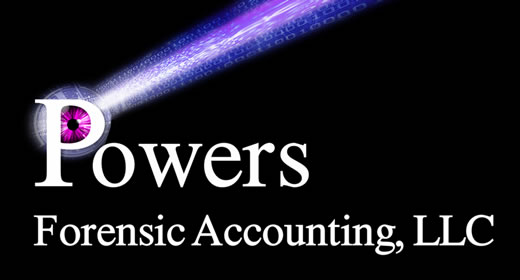Protecting Your Business with Fraud Prevention
By Chrissie A. Powers, CPA/CFF, CFE, CVA
Small organizations suffer the most from Occupational Fraud. Those with 100 or fewer employees absorbed a median loss in excess of $200,000 from fraud and abuse. (ACFE 2008 Survey) Small businesses are less likely to be able to financially survive such losses.
There are some easy steps that you can take to deter fraud within your Company.
- Run employee background checks, both civil and criminal, allowing your organization to make informed hiring decisions. Check employee references, verify credentials, and screen all potential employees. This is extremely crucial for employees obtaining positions of trust.
- All employment applicants should sign a release form allowing the employer ongoing authorization to conduct credit and background checks during their term of employment. This will aid in the investigation if a fraudulent act is suspected. Have legal counsel review the release form.
- Insist on all employees taking at least one week of vacation annually. Most fraud schemes need the fraudster to be at the office every day to continue the scheme.
- Pay special attention to details and changes in the personal and financial lives of your employees. Do you have an employee who's medical, financial, or personal problems suddenly became resolved?
- Secure fidelity bonds on employees who are trusted with money. Ensure coverage levels are adequate. Typically, standard policy limits are too low.
- Add a vendor audit clause to your purchase orders allowing you the right to examine the records of a vendor to determine if a fraud or violation of Company policy has occurred. This is essential to proving most kickback schemes.
- Put an Ethics Policy in place stating the conduct expected from employees. The Ethics Policy needs to clearly state that the employee will be prosecuted if committing fraudulent acts. Live up to those standards, and set the tone from the top.
- Institute procedures to increase the probability of fraud detection and swiftly deal with any fraud or abuse detected.
- Since most frauds are detected via tips from employees, vendors, customers, and other sources, develop methods to encourage reporting of suspicious activity.
- Create the belief that fraudulent acts will be detected and perpetrators punished.
While all losses from fraud cannot be eliminated, there are many measures an organization can undertake to significantly reduce its risk to loss. These measures include establishing sound operating and accounting procedures, then strictly enforcing adherence.

Chrissie A. Powers, CPA/CFF, CFE, CVA
© 2026 Powers Forensic Accounting, LLC All Rights Reserved.
Website by Lemon Dog Project
